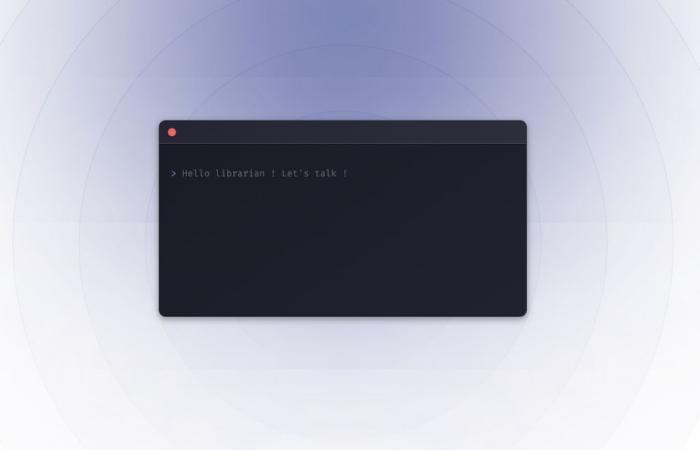Martin Aubeut, network operations manager and coordinator of periodical collections at the Jacques Prévert Library in Cherbourg, is aware of developments in artificial intelligence. Perhaps out of professional habit, he monitors this technology, “ the way it arrives in the library », on his personal time.
From improving character recognition to user assistance chatbots, technologies based on artificial intelligence have already transformed library jobs. But Martin Aubeut believes that one area is still virgin, that of “assistance with the creation of administrative documents, documentary charters or domain files, for example ».
Of course, assistance does not mean replacement, and the tool envisaged would not in itself define a documentation policy or an establishment project. Obviously, it would streamline and facilitate searches for books, providing welcome support when a user is looking for a book. And particularly a title “of which he has only a vague idea of the cover, or only a fragment of the title», takes Martin Aubeut as an example.
In the field of periodicals, which he knows well, the librarian also mentions a possible “help with filling in the fields of a notice in a regional magazine, for example, so that this activity is more accessible for a novice “. By relying on resources available online, the AI would make suggestions, then checked and validated by a professional.
The premises of an AI
A working group made up of 4 librarians, including Martin Aubeut, is actively working on the creation of a reliable and functional prototype. With some crucial questions, already, such as the management of the ecological impact – quite significant – of requests or the rules relating to data confidentiality.
Compared to ChatGPT or Llama, the artificial intelligence technologies of Microsoft and Facebook, this artificial intelligence tool would also beopen source.And this, “to prevent librarians, by using it, from sending their data to a private company which will exploit them», specifies Martin Aubeut.
Also, the exploitation of user data for the purposes of “improvement» of artificial intelligence raises other ethical dilemmas: “Are we based on a dataset visible to all? This raises questions for data privacy», asked the working group.
-READ – Do not give in to the networks: a writer suggests “Courbet’s test”
Before presenting the project more precisely to institutions in the sector, a functional prototype must be finalized – perhaps by next September, the librarians hope.
An interface “front», to ask questions to the AI, has already been developed at this address — it does not yet display answers or a dialogue, since the language model remains absent. “It was important to ensure that this interface was accessible in communities, where computers and connections are equipped with firewalls», specifies Martin Aubeut.
All those of good will can join the project, whose code name for the moment is “BookWarden” (“Guardian of books”), especially since the challenges ahead remain numerous, in particular that of financing: “We have not yet thought about the economic model, the idea would be that the tool is accessible to all, free, and, above all,open source. »
Photography: the BookWarden interface
By Antoine Oury
Contact : [email protected]






